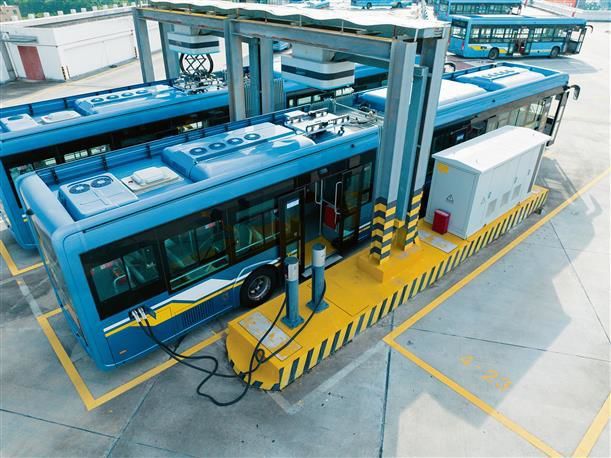
Vijay C Roy
Tribune News service
Chandigarh, July 30
With many of state governments, including Punjab and Haryana, placing orders for electric buses, the demand for such vehicles in the current fiscal is likely to achieve a growth anywhere between 62-76 per cent, albeit on small base.
According to data compiled by the Society of Manufacturers of Electric Vehicles (SMEV) as per VAHAN portal, 3,693 units of electric buses were sold across the country in the fiscal year 2023-24. While in the current fiscal, the industry is expecting to sell anywhere between 6,000-6,500 buses.
Various State Transport Undertakings (STUs) placed order for electric buses under the different schemes of the centre government such as Faster Adoption and Manufacturing of (hybrid and) Electric Vehicles (FAME-I amp; II), National Electric Bus Programme (NEBP) under Convergence Energy Service Ltd (CESL) and PM-eBus Sewa Scheme. Under PM-eBus Sewa Scheme, Punjab and Haryana has ordered over 400 buses.
There are over half a dozen electric bus manufacturers in the country include PMI Electro Mobility Solutions Pvt Ltd, Olectra Greentech Ltd, JBM Auto Ltd, Tata Motors Ltd, Ashok Leyland, Switch Mobility Automotive Ltd, VE Commercial Vehicles Ltd and EKA Mobility.
According to experts, efforts by the Central Government to reduce carbon emissions in public transport are driving e-bus adoption. This, along with favourable contracting terms under the Gross Cost Contracting (under the arrangement a gross-cost contract pays the operator a specified sum to provide a specified service for a specified period) model, which has emerged as the preferred route for e-bus purchase by STUs, has supported deployment.
While the surge in e-bus orders will generate economies of scale in production, declining battery costs will lower the purchase price of an e-bus. The benefits of the potential decline in e-bus prices may be passed on to STU n to STUs by bus operators, in terms of rentals per km, thus further aiding adoption.